ABSTRACT:
Domestic violence is undoubtedly a serious human rights issue and a grave deterrent to the development of a society. Today, this violence has transformed into a worldwide issue cutting across the barriers of religion, wealth, status and power. With the lockdown in force to tackle COVID-19, and disengagement with the outside world, conjoined with a patriarchal set up at home, the right of a woman to live with dignity has been flouted. This article addresses the long-drawn concern of domestic violence and sheds light on the potency of the Domestic Violence Act, 2005 considering the unprecedented hike in the number of cases owing to the lockdown. This article also highlights the statistics pertaining to the sudden influx of reports regarding this inhumane act and draws attention to the many reasons that thwart a woman from raising her voice. An emphasis is made on the efforts taken by various Governments across the world to combat this issue and to develop safe spaces for women to feel secure. The dream of diminishing the gender divide cannot be attained unless a zero-tolerance policy is adopted. A small act that would eventually bring about a phenomenal change is to first ensure that women equate ‘home’ to a safe haven where respect, love, and joy are in abundance.
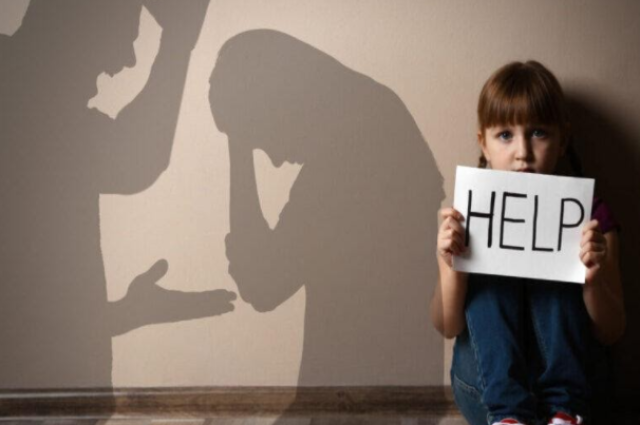
INTRODUCTION:
“To awaken the people, it is the women who must be awakened. Once she is on the move, the family moves, the village moves, the nation moves.”
- Pandit Jawaharlal Nehru
Half a century has passed yet the ingrained function of this quote hasn’t reached the masses. For a twenty-first century progressive society, our regressive behavior towards women makes them feel shackled and oppressed. Though women are in respected positions all over the world, they are still not respected between the four walls that make their supposed homes. Among the many heinous crimes against women, this article specifically addresses the perpetual and burgeoning problem of domestic violence.
Domestic violence can be defined as violent or aggressive behavior within a home, typically involving the violent abuse of a spouse or partner (1). It takes a number of forms, including physical, verbal, emotional, economic, religious, reproductive, and sexual abuse, which can range from subtle, coercive forms to marital rape and to violent physical abuse such as choking, beating, female genital mutilation, and acid throwing that results in disfigurement or death (2). Most of this violence is experienced among intimate relationships, ironically the men who are entrusted with the sacred duty of protecting the women are the ones violating them. Worldwide, one-third of women across the globe who have been in a relationship have reported that they have experienced some form of physical and/or sexual violence by their intimate partner (3). Violence and aggression against women in an overarching sense have been observed at homes, in workplaces, and other private and public forums. Therefore, a system with laws to protect victims of abuse is indispensable.
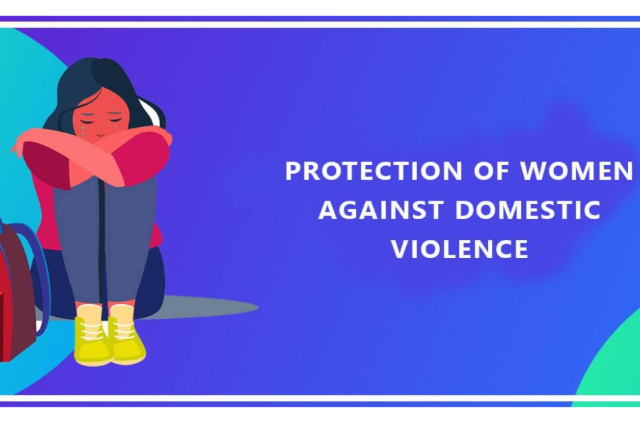
The Protection of Women from Domestic Violence Act (India), 2005 was a product of various feminist movements. The Mathura rape case (4) and the Rameeza Bee case (5) provided a strong impetus for the enactment of such legislation. These cases indicate that crimes against women like custodial rape, murder, torture, and character assassination have been prevalent since time immemorial in society. This Act has been landmark legislation in fighting the problem, however, it is important to analyze the effectiveness of its implementation amid a pandemic.
FIGHTING A HIDDEN PANDEMIC:
The year 2020 began with a heart-wrenching pandemic scare of COVID-19. With the whole world in lockdown, this virus has taken over the reins of our lives for quite some time now. Serious efforts have been taken to control this contagious virus but maneuvering through one crisis doesn’t exonerate responsibility to deal with this underlying issue. The pandemic resulted in lost livelihoods and subsequent economic crisis in most countries thus shifting attention away from a second stirring, shadowing pandemic in the form of domestic violence.
While ‘Stay Home, Stay Safe’ slogans were used universally, domestic violence victims felt vulnerable because ‘home’ and ‘safety’ weren't synonymous to them.
In France, reports of domestic violence have risen by 30% after the onset of lockdown. In China, according to their reports, the offenses of domestic violence nearly doubled during the lockdown, with 90% owing to the pandemic. In a recent study, the UN agency for sexual and reproductive health (UNFPA) stated that if the lockdown continues for another few months the cases of domestic violence would surpass 31 million worldwide (6).
The National Commission for Women (India) reported a total of 257 complaints of which 69 complaints pertained to domestic violence (7), within a fortnight of implementation of the lockdown. 1,612 of 2,446 calls from women in Delhi pertained to domestic violence in April 2020 (8), a month into the nationwide lockdown.
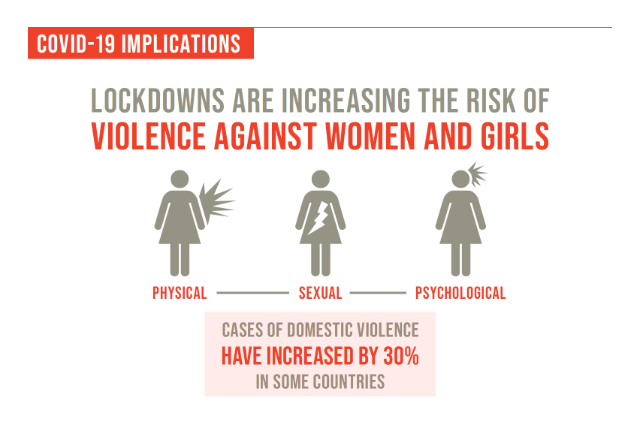
DECODING PATRIARCHY AMID THE PANDEMIC:
The lockdown confined victims with their abuser which consequently agitated a storm inside closed doors due to elevated stress, tension, anxiety, anger, and insecurities coupled with unemployment, joblessness, and wage reduction which in turn triggered violent behavior. Social factors also play a pivotal role in shaping an abuser’s morals and attitudes, as well as creating an atmosphere where mischievousness is rewarded and unpunished. A paramount issue that needs to be addressed which is often misconstrued as a generalization is that ‘The majority of men may not be perpetrators of this violence, but the majority of perpetrators are men’. Society explicitly portrays a ‘gender-role identity’ with limited definitions of ‘appropriate masculine behavior’ that glorify aggression, violence, and dominance which makes men think that they can get away with their belief that they should have power over their partner.
Although domestic and sexual violence has remained an all-too-common phenomenon throughout history, a stigma continues to shroud these issues in society thus preventing victims from raising their voices. Additionally, due to their confinement in the lockdown, women are powerless and terrified to raise their voices because of the constant presence of the abuser at home or fear of torture from their in-laws. Furthermore, the unavailability of a formal support system and reduced contact with the natal family restricts their ability to speak out. Although the Indian Judiciary provides necessary importance to both civil and criminal remedies, lengthy proceedings and huge litigation costs act as yet another barrier for women to stand up for themselves.
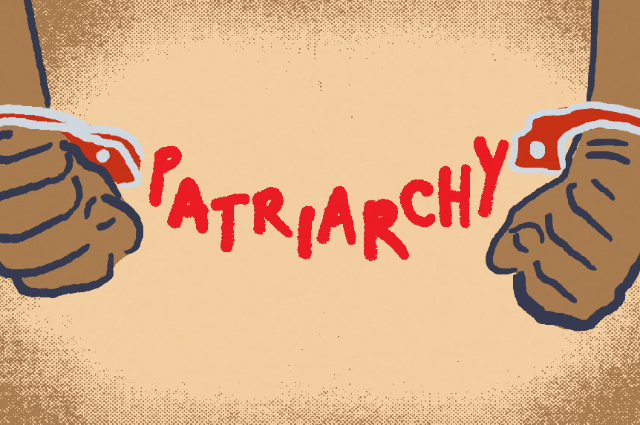
PANDEMIC MAKES VICTIMS’ PLIGHT WORSE:
With patriarchy deeply ensconced in society, violence against women within the walls of her home is considered as a 'private family matter' and is paid little or no heed to. About 86% of women who experienced violence never sought help, and 77% of the victims did not even mention the incident(s) to anyone. Among the 14.3% of victims who sought help, only 7% reached out to relevant authorities — the police, doctors, lawyers, or social service organizations. But more than 90% of the victims sought help only from their immediate family which is often ignored or labeled as ‘marital problems, that the husband and wife have to figure out on their own (9). Due to the ignorance and incomprehension of domestic violence, the need for a system of safe and silent reporting is imperative. A few countries have taken efforts to administer a feasible system for victim empowerment.
In France, Germany, Italy, Norway, and Spain, pharmacies, and supermarkets have become safe ‘go-to’ spaces where the utterance of a codeword (“MASK 19”) signals an urgent request for protection from domestic abusers (10). These locations are often the only retailers open, and shopping for essential groceries is the only acceptable reason for people to leave their homes. In Italy, the Government is also considering an offer to allocate 4 million euros for shelters for women who are victims of abuse. In Malaysia, the Government implemented the ‘Talian Kasih’ hotline to provide proper assistance to the victims of domestic violence and other forms of violence (11). In Greece, officials confirmed that there are up surging campaigns to provide women with the help they need to deal with problems that transpired from the issue of confinement (12).
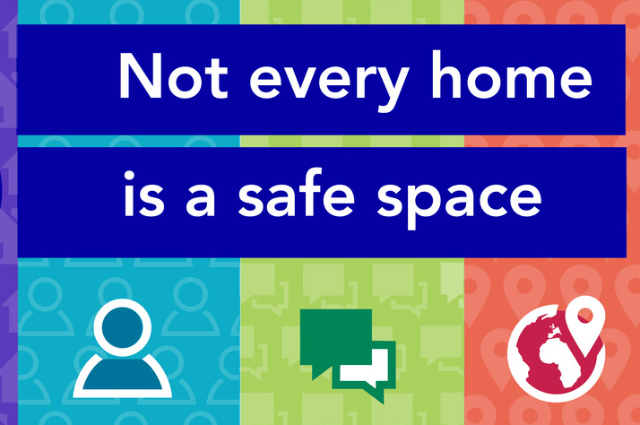
BREAK THE SILENCE: #AbSamjhautaNahin
“Domestic violence is the front line of the war against women.”
- Pearl Cleage
The more we choose not to raise our voice against domestic violence, the more we shy away from the social evil and the more we lose. It becomes a loss for all women worldwide and a huge win for a ceaseless patriarchal and misogynistic society. It’s time we stand up for the oppressed and tyrannized part of society and call out domestic violence for what it really is - violence. Let’s make our women realize the true meaning of 'Home is where the heart is.'

. . .
Reference:
- www.lexico.com
- en.wikipedia.org
- www.who.int
- www.jstor.org
- Tuka Ram And Anr vs State of Maharashtra 1979 AIR 185
- theleaflet.in
- www.oxfamindia.org
- www.hindustantimes.com
- www-thehindu-com.cdn.ampproject.org
- theleaflet.in
- www.nst.com.my
- www.euro.who.int
